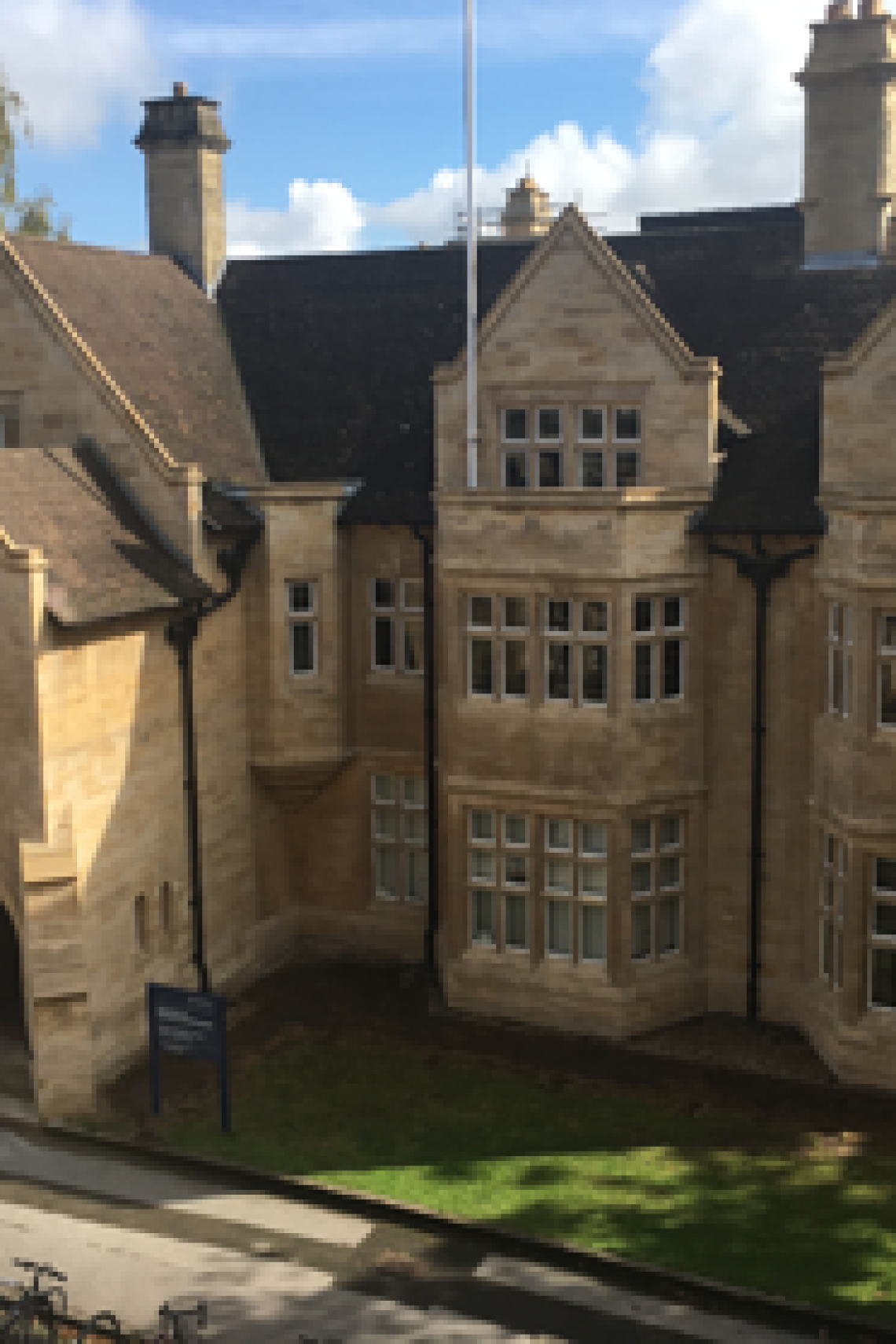Lena Reim, Nora Cyrus and Ollie Ballinger win 2019 MPhil prizes
Congratulations to Lena Reim, Nora Cyrus and Ollie Ballinger who have won the 2019 prizes for their performance in the MPhil in Development Studies.
[[{"fid":"2265","view_mode":"default","fields":{"format":"default","field_file_image_alt_text[und][0][value]":false,"field_file_image_title_text[und][0][value]":false,"field_image_information[und][0][value]":"","field_image_information[und][0][format]":"filtered_html"},"type":"media","field_deltas":{"1":{"format":"default","field_file_image_alt_text[und][0][value]":false,"field_file_image_title_text[und][0][value]":false,"field_image_information[und][0][value]":"","field_image_information[und][0][format]":"filtered_html"}},"link_text":null,"attributes":{"class":"media-element file-default","data-delta":"1"}}]]
Lena of St Antony’s College won the Eugene Havas Memorial Prize for best overall performance in the MPhil. Nora of Exeter College won the Papiya Ghosh Thesis Prize. Ollie of St Antony’s College won the Examiners' Prize.
Nora is working as a consultant and plans to explore the possibility of pursuing a DPhil and expanding on her MPhil research in the near future.
Her prize-winning thesis investigates citizen participation in Medellín (Colombia) against the backdrop of the city’s conflict-ridden past and its recent, internationally acclaimed ‘transformation’. Drawing on data from semi-structured interviews, participant observation, and archival study, her research seeks to understand how women conceptualise participation and practice it in urban planning processes in the city’s Villa Hermosa district.
Her analysis employs the concept of place (which comprises both humans’ physical surroundings and the emotions, symbols and communities they attach to them) as a lens for exploring the dynamics of women’s urban planning participation, and especially their cultural, social, and historical specificity in Villa Hermosa. In so doing, Nora discusses the role of different forms of displacement, struggles for housing and basic services in ‘auto-constructed’ settlements, and the need to navigate one’s daily life in the face of ‘invisible borders’ between armed actors.
Nora’s thesis brings to light the centrality of place-based identity for citizen participation, and its special importance for women, in Villa Hermosa. It also lays out the challenges this poses to the municipality’s current discourses surrounding participatory planning, which either hinge on city-wide narratives of belonging or demand that women act based on female solidarity. Her findings cast doubt on Medellín’s emerging model status in terms of innovative and inclusive urban governance.
Ollie is also continuing on to the DPhil in International Development at ODID.
Based on the findings from his MPhil thesis, which focused on Southeastern Turkey, he hopes to investigate the relationship between regional development projects and conflict more broadly.
Governments increasingly use large infrastructural and agricultural policies to address conflict or separatism within their borders, yet there are few assessments of the impacts of these policies due to the difficulty of gathering empirical evidence in such settings. To overcome this problem he plans on continuing to combine methodologies from various disciplines, such as satellite imagery analysis to quantify the impact of agricultural policies or to identify the construction of infrastructure, web-scraping to gather micro-level data on voting behaviour or recruitment to insurgencies, and qualitative interviewing to inform model design, understand the bigger picture, and interpret quantitative results.
Find out more about the MPhil in Development Studies

